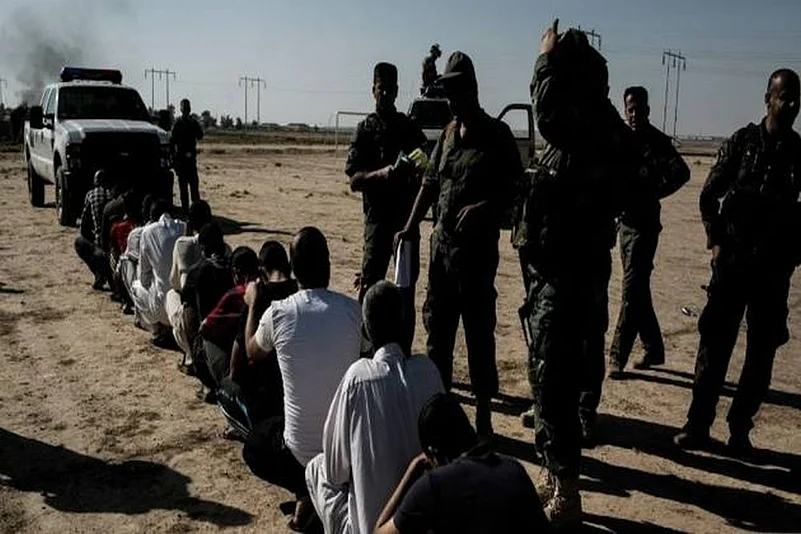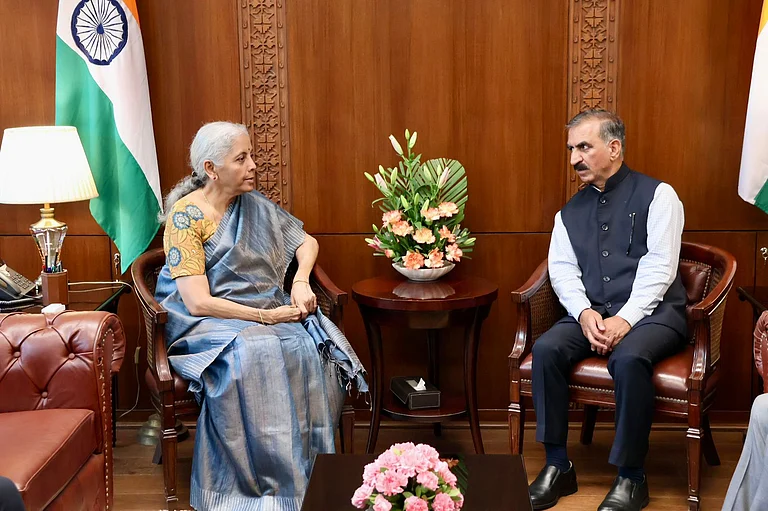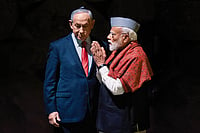Terrorism is becoming a major problem in Pakistan, adding to the general feeling of pessimism within the country. Attacks by the Tehrik-i-Taliban Pakistan (TTP) were stepped up across Pakistan, especially in the tribal belt adjoining Afghanistan, after the group called off a ceasefire with government forces last November.
The ceasefire, signed in June 2022, was shaky from the start. Islamic terror groups across the region were reinvigorated after the Afghan Taliban’s victory over the US. The fact that the Taliban could win against the world’s most powerful army was a morale booster. The TTP now felt that it was only a matter of time before the Pakistan forces could also be overrun. The added advantage was that the TTP could now operate from Afghanistan where a friendly government was in charge.
Yet the Pakistan Army had, more or less, broken the back of the Taliban in 2014, when it launched operation Zarb-e-Azb after an audacious attack by the TTP and assorted militant groups on the Jinnah International Airport in Karachi. The successful army operation was launched on June 15, 2014, and involved 30,000 troops. It was confined to North Waziristan along the tribal-dominated lands between Afghanistan and Pakistan. Here, the TTP and various militant groups had for years done much as they pleased and terrorized the people into obedience. The government and army turned a blind eye until the attack on the Karachi international airport. The military operation flushed out terrorists and strikes across the country came down dramatically.
However, the Taliban victory in 2021 has strengthened the TTP. Many of the fighters jailed by the previous Afghan government were released. The TTP is hand and glove with the Taliban and gets the support of powerful sections within the Afghan government. TTP fighters can easily slip across the border to safety after a strike inside Pakistan. This has emboldened the TTP and led to an increase in attacks on the police and security establishment.
A report by the Pakistan Institute of Conflict and Security Studies (PICSS) said that January 2023 was one of the deadliest months, with 44 militant attacks across the country. In January alone, 134 people were killed and 254 injured. In February, 80 policemen were killed in a strike on a mosque in Peshawar’s police lines. On February 18, there was a daring suicide attack on the Karachi police chief’s office, showing the reach of the TTP beyond the tribal areas to the commercial hub of Pakistan.
The TTP ceasefire was brokered by the all-powerful former ISI chief and Imran Khan loyalist Faiz Hameed and the details of the pact are not known to many in the current government. Despite the euphoria in Pakistan, when the Taliban took power in Kabul in August 2021, that a pro-Islamabad government was installed, the expectations of the establishment were soon belied.
The problem for Pakistan is two-fold. Despite repeated assurances from the Taliban leadership, that terror outfits will not be allowed to operate against Pakistan from Afghan soil, nothing has been done to rein in the TTP. That group is closely affiliated with the Taliban and many within the current ruling party support the TTP’s desire to topple the government and make Pakistan a truly Islamic state like Afghanistan. The situation is further complicated by the Taliban’s refusal to accept the Durand line as the border between Pakistan and Afghanistan. Incidents of firing on Pakistani forces by the Taliban have increased in recent months.
Last month, a high-level delegation comprising Pakistan’s defence minister Khawaja Asif, ISI chief Lt Gen Nadeem Anjum, foreign secretary Asad Khan, as well as Mohammad Sadiq, Pakistan’s special representative for Afghanistan, visited Kabul to talk to the Taliban leadership. They met deputy prime minister Mullah Abdul Ghani Baradar (who had spent years in a Pakistani prison and was released ahead of the US-Taliban talks), defence minister Mohammad Yaqoob, son of Mullah Omar (the founder and spiritual leader of the Taliban), interior minister Sirajuddin Haqqani, who is known to be close to the ISI, and foreign minister Amir Khan Muttaqi.
At the end of the discussions was the growing threat of terrorism in both Afghanistan and Pakistan. The Islamic State of Khorasan Province (ISPK), the South Asian version of the ISIS, is spreading its wings across Afghanistan and challenging the authority of the government in Kabul. Taliban has not succeeded in turfing the group out of the country. The Pakistan team stressed on the TPP, which gets support and refuge from the Taliban government. The ISPK established itself in Afghanistan around 2015 when the US and NATO forces were still operating in the country. The Islamic force is opposed to the nationalist view of the Taliban and is much more focused on creating a global caliphate.
This is not the first time that the Taliban rulers had promised Islamabad action against the TTP. But till now, assurances have shown little action on the ground. The fact is, there are many within the Taliban who are close to the TTP. There is also infighting between the various factions.
In a recent report, the US Institute of Peace has said that while Interior Minister Siraj Haqqani, known to be close to the ISI, had restrained the TTP on Pakistan’s requests, others do not see eye to eye with him. “Yet the balance of opinion within the Taliban is strongly in favour of the TTP and its campaign. In particular, Taliban Amir Hibatullah Akhundzada agrees with the TTP that the Pakistani system is un-Islamic,” the report said.
Radicalism of the religious variety has been the bane of Pakistan for decades. Political parties played the religious card whenever it suited them. Military dictator Zia Ul Haq promoted a hardline Islamic ideology and cracked down on liberal politics in an effort to consolidate his power base. Pakistan’s liberals point to him as the man who gave rise to Islamic fundamentalism in the country. The Pakistan military used jihadi groups against India in Kashmir. Islamic terror outfits, supported by the establishment, were sent into India to inflict a thousand wounds.
The US, too, played a major role in turning Pakistan into a haven of Islamic extremism. Washington used Pakistan and its military as a conduit to supply weapons and training to the Afghan mujahideen when they were fighting the Soviet army in Afghanistan. Pakistan helped the US to fight its proxy war in Afghanistan and the radical Islamic groups of Afghanistan crossed over for sanctuary to Pakistan. Funds, weapons and Islamic fighters filled Pakistan’s border areas. By the time the Soviet troops were forced out of Afghanistan, radical Islam was well entrenched in Pakistan’s border areas. The Taliban was the creation of Pakistan.
While Zia was a willing partner to the Americans during the soviet invasion, General Pervez Musharraf sided with the US in the war against terror in 2001. The Pakistan Army profited by helping the US and NATO forces. Funds poured in from the US and NATO forces but by now, radicals in Pakistan turned against their government for helping the US. Anti-Americanism was rampant in the country, especially among the common people. The border areas neighbouring Afghanistan saw local extremist groups take control.
The next few days and months will be crucial. If Kabul wants to keep the TTP under control, the situation will improve. Or else, the army will have to launch another operation. Neither the army nor the government wants that as of now. The hope is that the Taliban would play its part to rein in the TTP. Unfortunately, the Taliban itself is not a cohesive group and in such circumstances, chances of a crackdown against the TTP are unlikely.



























